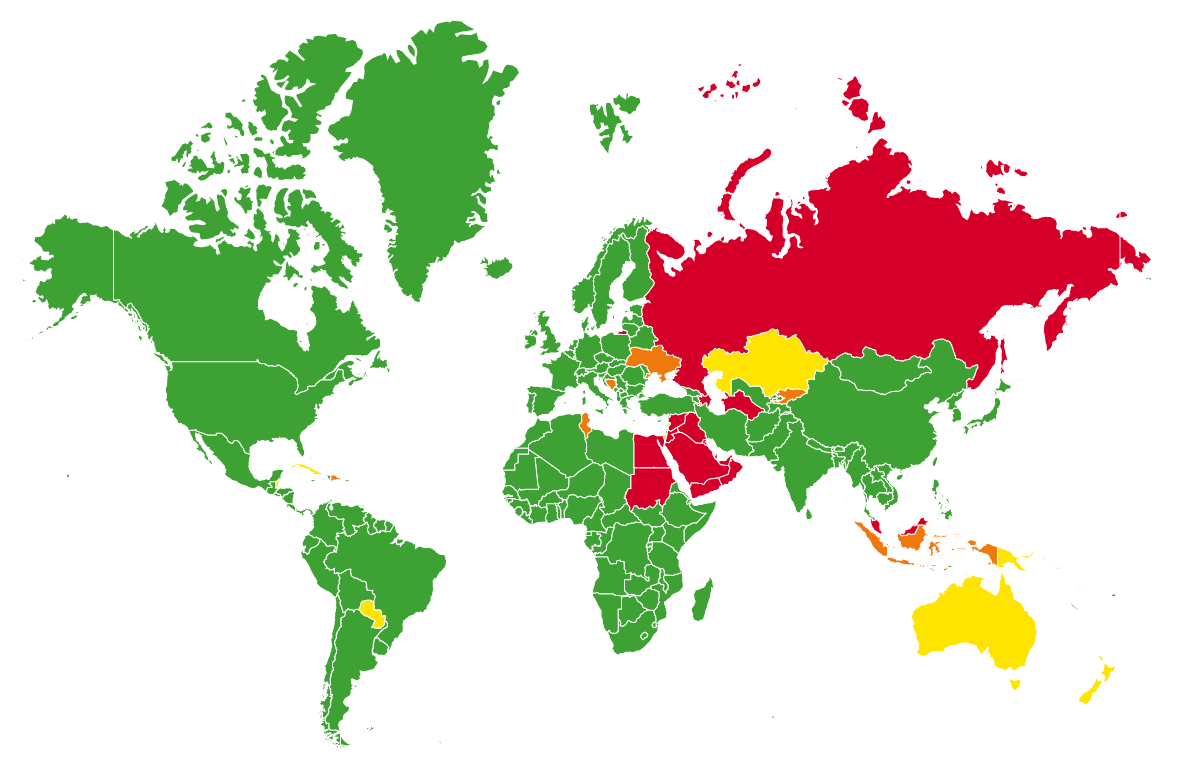Living with HIV: what does an HIV diagnosis mean? | 8 minute read
This article covers living with HIV and the law in England and Wales.
Living with HIV has changed dramatically over a relatively short space of time. Luckily, it’s gradually becoming commonly accepted that an HIV diagnosis is no longer as serious as it once was. With medication improving, the ‘HIV status lifespan’ (the difference in lifespans between HIV positive and HIV negative individuals) has closed to almost nothing. This means regardless of whether you’ve got HIV, your life expectancy is the same.
Despite this, however, misconceptions about HIV, how it spreads, and those living with the virus continue to pervade our workplaces and society in general.
So, what does it mean to live with HIV and how does it affect you from a legal perspective?
Is HIV a disability?
Some disabilities are invisible and HIV is no different. While many living with HIV don’t necessarily consider themselves ‘disabled’, having HIV is considered a disability under the Equality Act 2010.
Can You Claim disability benefits if you're living with HIV?
It’s unlikely that you’ll qualify for disability benefit if you’re living with HIV.
A small number of people do, however it’s typically due to the failure of anti-retrovirals to work, opportunistic infections taking hold or other long-term issues linked to HIV affecting mobility that allow people to qualify for disability benefit.
The Equality Act 2010 considers a person disabled under specific circumstances, including if they have a diagnosis of cancer, HIV or multiple sclerosis. These are called ‘deemed disabilities’.
This means if you have HIV, you have the same rights as pregnant women, people with mobility issues and people with learning disabilities.
But this doesn’t mean that you’ll receive the same treatment as everyone else covered under the Equality Act, especially in the workplace. It all boils down to what’s reasonable to do.
How should employers treat people living with HIV?
As with every other protected characteristic under the Equality Act 2010, employers have to make reasonable adjustments to enable anyone covered to work. But the key here is the word ‘reasonable’.
What is reasonable for one protected characteristic may not be reasonable for another. It also depends on circumstance and, to a certain degree, how a business treats others with the same conditions.
If you have HIV, it may (but isn’t guaranteed to) be reasonable to:
- take time off work to attend hospital appointments
- adjust the hours that you work on a temporary basis, for example if you need to change your HIV treatment
- change your duties if you cannot undertake them due to HIV
You have to be mindful of the impact the changes you request have on the business you work for.
The threshold of what’s reasonable for a large company with thousands of employees to do may be much higher than for a small business. This is because in a small business, your ‘head’ contributes to a higher proportion of the entire workforce.
But an employer can only make any reasonable adjustments if you disclose that you are living with HIV.
Disclosing Your HIV Status to a Prospective Employer
A prospective employer normally can’t ask you about your HIV status, but they may ask you if you have any pre-existing medical conditions that may affect your performance. You can choose to answer this question or leave it blank, but you should never lie. Doing so risks your dismissal due to breaching mutual trust if you lie and are later found out.
If you choose not to disclose that you’re living with HIV, an employer has no obligation to make reasonable adjustments for you if you can’t meet the required work standard due to sickness.
You can, however, disclose this at any point.
There are, however, a handful of professions who require you to tell them that you are HIV positive. The most common profession that comes under this umbrella is the armed forces. This is due to concerns that people living with HIV and working in the armed forces may not always have access to anti-retrovirals, particularly if you’re posted abroad.
Guidelines for the healthcare sector on the other hand are split into two:
If you risk exposure to blood
You will need to disclose your HIV status and have regular check-ups to show that you are maintaining an undetectable CD-4 count.
If you don't risk exposure to blood
You won’t need to disclose your HIV status.
When Is It Reasonable to Dismiss Someone Who Has HIV?
Employers should only dismiss you because of your HIV status if they have a reasonable reason for doing so. They need to demonstrate that they have previously taken your condition into account and tried to make the required adjustments.
As sad as it may be to lose your job, sometimes it’s an employer’s only way forward.
Some situations when an employer may reasonably terminate you if you’re living with HIV include:
1. They have made reasonable adjustments but even with these, you’re not able to perform your duties to a satisfactory standard
2. Your role is so specialised and crucial that adjustments to it are simply not reasonable, and a replacement needs to be sought
3. Making the adjustments you require would mean a lapse in safety that would present danger to other employees
Discrimination against people living with HIV
The myths and misunderstandings surrounding HIV can lead to direct and indirect discrimination even though this isn’t allowed by law.
There are still activities and services that the vast majority of the public can enjoy, which have put up barriers to those living with HIV, including:
– A medical services provider refusing to register a patient due to their HIV status
– A landlord who takes action against a tenant because of their status
– Segregating or dividing children up because of fears about one child’s HIV status
In all of these circumstances, if you can prove that the act of discrimination is because of your HIV status, it’s likely you have a discrimination case on your hands.
Living with HIV as a woman
HIV and the AIDS crisis have been well documented in the gay community, but women are often left out of the HIV discussion completely.
Unfortunately, women with HIV may suffer disproportionately from direct and indirect discrimination because of their status. Some women with HIV may feel isolated because there isn’t the same level of openness or support offered to them.
There simply isn’t the same solidarity or acceptance amongst women living with HIV as there is, for example, in the gay community.
But almost a third of all people in the UK living with HIV are women.
Attitudes are slowly shifting, but a stark reality remains. Until a larger focus is put on the plight of women with HIV, discrimination may still be commonplace.
Living with HIV and travelling abroad
Protections for people living with HIV have evolved over years in the UK, but they still have a long way to go. In other countries, these rules can lag behind, or people with HIV can be restricted for health reasons, typically in developing nations.
Developed nations can also have stringent HIV restrictions in place:
- Singapore bans long term stays over 90 days for foreigners who are HIV positive.
- Even some EU countries place restrictions on people living with HIV. Cyprus allows long stays by EU citizens with HIV but will deny these to those from outside the bloc. This ban extends to American citizens.
Always check local laws before you travel.
If you experience discrimination abroad because of your HIV status, take a pause for thought. It’s unlikely you can take any legal action against establishments without knowing more about local laws and customs. As unsavoury as it may be, there are countries where you simply lack rights.
Similarly, some jobs require travelling abroad for extended periods of time to countries that ban travellers with HIV. If this affects your performance in your role, disclose your status to your employer to receive adjustments.

A map showing the 49 nations who restrict travellers with HIV. Red represents the most stringent measures. Image source: unaids.org
What stops people claiming for HIV discrimination?
One word: cost. As inherently unfair as this sounds, the cost of legal proceedings can be extreme, and are often disproportionate to the amount you can recover. Often, you may have to draw a line between what is acceptable legally, and what is acceptable ethically.
While individuals can represent themselves in workplace discrimination cases, civil claims in court legally require a solicitor to take them forward.
Some firms may offer legal aid or no win-no fee agreements for cases involving HIV discrimination. However, the difficulty with such cases is always proving that any discrimination was down to having HIV and not some other reasonable factor.
There is still some work and reformation required in legislation to remove these legal barriers from people living with HIV.
If you’re living with HIV and need legal advice, our expert team here at LGBT Lawyers will put you in touch with an expert discrimination lawyer.



0 Comments